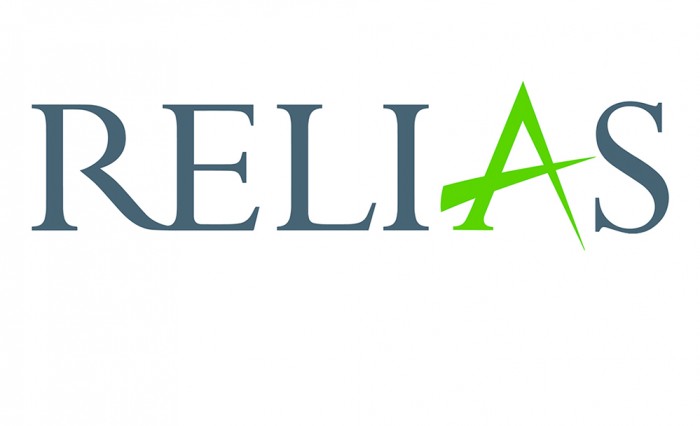The Republican-controlled U.S. House adopted a federal budget resolution last week that instructs the House Energy and Commerce Committee, which has jurisdiction over Medicaid, to identify at least $800 billion in mandatory spending cuts during the next 10 years. The resolution is now in the GOP-controlled U.S. Senate.
Medicaid, which is jointly funded by states and the federal government through a federal matching program with no cap, is seen as a prime target for cuts, as it is one of the largest federal programs at a cost of more than $600 billion a year. Approximately 70 million people in the United States receive Medicaid benefits, with about 3 million — including 1.2 million children — of those in Pennsylvania. While officially the federal government did not name Medicaid as the target, there are virtually no other areas to turn to in order to generate such spending cuts.
Proposals being considered in Congress to cut Medicaid are estimated to cost Pennsylvania as much as $2 billion a year. These cuts will inevitably result in:
- Fewer insured Pennsylvanians;
- Fewer covered services for those who remain insured;
- Lower reimbursement rates paid to providers;
- Increases in uncompensated care; and
- Higher healthcare costs for those who are insured.
In addition to broad, negative consequences, each segment of the human services sector will be affected.
Behavioral Health
Medicaid is the largest payer of behavioral healthcare services in the United States, where nearly 40 percent of non-elderly adult Medicaid beneficiaries have a mental health or substance use disorder. Additionally, Medicaid is an essential revenue source for behavioral healthcare organizations. With the potential of fewer covered individuals and lower reimbursement rates, access will be squeezed, with existing providers less incentivized to accept Medicaid patients.
These potential cuts come on the heels of a compromised post-public health emergency unwinding of Medicaid, in which Pennsylvania’s actuarial analysis for the behavioral health capitation was severely underestimated. The eventual Medicaid rolls included more individuals with acute and chronic conditions, resulting in higher levels of care and services. Despite mid-year adjustments to the HealthChoices’s primary contractors, Pennsylvania will start the new fiscal year with the need to increase its BH Medicaid capitation by nearly $640 million.
Intellectual and Developmental Disabilities
Medicaid is the primary funding source for IDD services. If the proposed multi-billion dollar funding cuts occur, Pennsylvania’s intellectual disability system will face serious consequences, including service reductions, longer waitlists, and limited access to essential care. Providers already under strain may have to discharge individuals from community-based services, potentially returning them to institutional settings and undoing decades of progress towards independence and inclusion.
Pediatric Rehabilitation
Medicaid is a key funding source for healthcare and rehabilitation services for infants, children, and adolescents living with disabilities and medical complexity. Even for families with a private primary insurance, Medicaid as a secondary insurance fills in the gaps in covered care. Children with disabilities, regardless of household income, are Medicaid eligible to offset the high costs of care. Medicaid cuts will negatively impact the most vulnerable in our state: children with disabilities and special health needs.
Early Intervention
Medicaid is a supplemental funding source for Early Intervention services in Pennsylvania. All Pennsylvanian families currently enjoy access to these crucial home- and community-based services with no cost-share. Cuts in funding to this program may cause tighter eligibility requirements or cost-shares for families, ultimately decreasing access to essential services.
How the Cuts Might Be Done
Work Requirements
At this point, work requirements appear to be one of the most likely paths to Medicaid cuts.
According to the Pennsylvania Health Access Network (PHAN), approximately 1 million adults in Pennsylvania would be subject to the work requirement.
Medicaid work requirements would require certain Medicaid enrollees to work, look for work, or conduct another qualifying activity (e.g., education, caretaking) as a condition of receiving health insurance. As part of such a requirement, all working age Medicaid enrollees may be required on a monthly basis to report their work or verify their eligibility for an exemption because they are in school or a job training program, caring for others, or disabled/in treatment. Failure to do so would result in them losing Medicaid coverage.
On the surface, increasing support for work requirements is understandable. Able-bodied citizens on Medicaid who can work, should work. What is not being discussed is the fact that most of these individuals are already working but at an income that still qualifies them for Medicaid. Further, studies from states that have attempted to implement a Medicaid work requirement show that the cost to the state to implement and administer such a requirement is in the tens of millions of dollars.
If work requirements become a reality, advocates must lobby for waivers for special populations.
Federal Medical Assistance Percentage (FMAP)
At this point, according to Speaker of the U.S. House Mike Johnson, FMAP (as well as per-capita caps, see below) are not a consideration for reducing Medicaid spending.
Each state’s FMAP determines its federal share of Medicaid funding. FMAP is a formula that uses the state’s most recent three-year average per capita income data to provide higher matching rates to states with lower per capita incomes relative to the national average. FMAPs have a statutory minimum of 50 percent and a maximum of 83 percent.
In Pennsylvania, 56 percent of Medicaid costs are paid with federal dollars, leaving Pennsylvania to cover the balance.
Under the Affordable Care Act’s Medicaid Expansion, the FMAP for what became the newly eligible population — mostly low wage workers who do not have coverage through an employer, disabled workers, caregivers to children or elderly family members, and students — is fixed at 90 percent federal funding, with the commonwealth paying for the balance.
Per Capita Caps
A per capita cap funding arrangement sets an upper limit on federal payments per Medicaid enrollee in each eligibility group. In an aggregated cap (also called a capped allotment) approach, states receive federal matching funds up to a determined maximum. If the cap is exceeded, the state bears 100 percent of that cost with no federal match.
Resources
There are many resources continually being developed and distributed. These include ways to take immediate action with Congress. The following are some of the most relevant to our membership.
Next Steps
RCPA will continue to closely monitor the issue. As Congress’s next steps become clearer, we will work with our partners, including you, to develop and execute strategies to stop Medicaid cuts or minimize the negative effects.
Contact your respective RCPA Policy Director with questions.

















